Students, academics, executives and physicians came together in Darien, a Chicago suburb, to consider action to uplift the millions in India
DARIEN (Illinois): Students, academics, executives and physicians came together in Darien, a Chicago suburb, to consider action to uplift the millions in India who have been bypassed by the country's economic reforms.
The speakers recounted their experiences in tackling the problems of India's rural poor from water purification and primary education to healthcare for impoverished tribal children.
Some of the speakers noted that they, not the villagers, had been the net gainers. One of them was University of Iowa professor Raj Rajagopal who led 23 students for a three week visit to Tamil Nadu. His students participated with eight organisations that worked to address social problems such as child labour, unemployment, poverty, healthcare for the poor, illiteracy and community waste management.
All his students had a question, Rajagopal said, which was echoed by other visitors to India's impoverished villages - "How can there be so much generosity when they have nothing?" Another speaker observed that he had received "unconditional love" from the villagers.
The conference titled the 'Rural Indian learning journey conference' was held by a local not for profit organisation, the India Development Coalition of America (IDCA). The IDCA has amongst its objectives the promotion of collaboration between Indian American organisations and individuals engaged in development in India, and the promotion of a forum for members to network with one another.
"These people are underprivileged but not backward," said Roda Patel, who closed down a flourishing paediatric practice in Northbrook, Illinois to take care of tribal children in Kharel, Gujarat.
Patel referred to the rapid urbanisation of India, which leads to the inevitable urban squalor. "They are creating horrible slums," she said. After moving to Kharel, Patel said that the major part of her responsibility was non-medical. She said she focussed her energy on total impact, including the eradication of malnutrition, and social change.
Most of the children who are the beneficiaries of her project - under the Gram Seva Foundation - are the children of sugar and brick factory workers. The hospital she works with also employs local women, who despite a school education, would have otherwise worked in the fields. "These girls and boys work with so much zest," she said.
Despite the economic liberalisation, prosperity has not touched more than 70 percent of India's population, speakers noted. "India has monumental problems," said D.V. Giri, who worked in Indian orphanages.
"On the purchasing power parity scale, India ranks fourth in the world, but on the human development index, it ranks 126th, according to a United Nations study. We need to reconcile the two."
Another Indian American, Amarjit Singh, spoke about his experience in installing water purification plants in Rajasthan's villages. He had a word of advice for others: "Money is never a problem if your heart is in what you do. But keep away from (Indian) government officials."
![submenu-img]() IND vs BAN T20 World Cup warm-up: Dominant India beat Bangladesh by 60 runs in New York
IND vs BAN T20 World Cup warm-up: Dominant India beat Bangladesh by 60 runs in New York![submenu-img]() Ankita Lokhande dedicates her career to Sushant Singh Rajput, pens emotional note on Pavitra Rishta completing 15 years
Ankita Lokhande dedicates her career to Sushant Singh Rajput, pens emotional note on Pavitra Rishta completing 15 years![submenu-img]() Amethi Lok Sabha Election 2024 Exit Poll LIVE: Smriti Irani vs KL Sharma, who will win?
Amethi Lok Sabha Election 2024 Exit Poll LIVE: Smriti Irani vs KL Sharma, who will win?![submenu-img]() Mumbai South Lok Sabha Election 2024 Exit Poll: Uddhav Thackeray vs Eknath Shinde, which Sena faction will win the seat?
Mumbai South Lok Sabha Election 2024 Exit Poll: Uddhav Thackeray vs Eknath Shinde, which Sena faction will win the seat?![submenu-img]() Basirhat Lok Sabha Election Exit Poll: Haji Nurul Islam likely to win the seat, according to India Today-Axis My India
Basirhat Lok Sabha Election Exit Poll: Haji Nurul Islam likely to win the seat, according to India Today-Axis My India![submenu-img]() Meet JEE Main topper with AIR 4, plans to pursue BTech from IIT Bombay, he is from...
Meet JEE Main topper with AIR 4, plans to pursue BTech from IIT Bombay, he is from...![submenu-img]() Meet Indian genius who won National Spelling Bee contest in US at age 12, he is from…
Meet Indian genius who won National Spelling Bee contest in US at age 12, he is from…![submenu-img]() Meet man who became IIT Bombay professor at just 22, got sacked from IIT after some years because..
Meet man who became IIT Bombay professor at just 22, got sacked from IIT after some years because..![submenu-img]() Meet Indian genius, son of constable, worked with IIT, NASA, then went missing, was found after years in...
Meet Indian genius, son of constable, worked with IIT, NASA, then went missing, was found after years in...![submenu-img]() Meet IAS officer who was victim of domestic violence, mother of two, cracked UPSC exam in first attempt, she's posted in
Meet IAS officer who was victim of domestic violence, mother of two, cracked UPSC exam in first attempt, she's posted in![submenu-img]() DNA Verified: Did Kangana Ranaut party with gangster Abu Salem? Actress reveals who's with her in viral photo
DNA Verified: Did Kangana Ranaut party with gangster Abu Salem? Actress reveals who's with her in viral photo![submenu-img]() DNA Verified: New Delhi Railway Station to be closed for 4 years? Know the truth here
DNA Verified: New Delhi Railway Station to be closed for 4 years? Know the truth here![submenu-img]() DNA Verified: Did RSS chief Mohan Bhagwat praise Congress during Lok Sabha Elections 2024? Know the truth here
DNA Verified: Did RSS chief Mohan Bhagwat praise Congress during Lok Sabha Elections 2024? Know the truth here![submenu-img]() DNA Verified: Is CAA an anti-Muslim law? Centre terms news report as 'misleading'
DNA Verified: Is CAA an anti-Muslim law? Centre terms news report as 'misleading'![submenu-img]() DNA Verified: Lok Sabha Elections 2024 to be held on April 19? Know truth behind viral message
DNA Verified: Lok Sabha Elections 2024 to be held on April 19? Know truth behind viral message![submenu-img]() Streaming This Week: Panchayat season 3, Swatantrya Veer Savarkar, Illegal season 3, latest OTT releases to binge-watch
Streaming This Week: Panchayat season 3, Swatantrya Veer Savarkar, Illegal season 3, latest OTT releases to binge-watch![submenu-img]() Avneet Kaur shines in navy blue gown with shimmery trail at Cannes 2024, fans say 'she is unstoppable now'
Avneet Kaur shines in navy blue gown with shimmery trail at Cannes 2024, fans say 'she is unstoppable now'![submenu-img]() Assamese actress Aimee Baruah wins hearts as she represents her culture in saree with 200-year-old motif at Cannes
Assamese actress Aimee Baruah wins hearts as she represents her culture in saree with 200-year-old motif at Cannes ![submenu-img]() Aditi Rao Hydari's monochrome gown at Cannes Film Festival divides social media: 'We love her but not the dress'
Aditi Rao Hydari's monochrome gown at Cannes Film Festival divides social media: 'We love her but not the dress'![submenu-img]() AI models play volley ball on beach in bikini
AI models play volley ball on beach in bikini![submenu-img]() Lok Sabha Elections 2024: What are exit polls? When and how are they conducted?
Lok Sabha Elections 2024: What are exit polls? When and how are they conducted?![submenu-img]() DNA Explainer: Why was Iranian president Ebrahim Raisi, killed in helicopter crash, regarded as ‘Butcher of Tehran’?
DNA Explainer: Why was Iranian president Ebrahim Raisi, killed in helicopter crash, regarded as ‘Butcher of Tehran’?![submenu-img]() DNA Explainer: Why did deceased Iranian President Ebrahim Raisi wear black turban?
DNA Explainer: Why did deceased Iranian President Ebrahim Raisi wear black turban?![submenu-img]() Iran President Ebrahim Raisi's death: Will it impact gold, oil prices and stock markets?
Iran President Ebrahim Raisi's death: Will it impact gold, oil prices and stock markets?![submenu-img]() Haryana Political Crisis: Will 3 independent MLAs support withdrawal impact the present Nayab Saini led-BJP government?
Haryana Political Crisis: Will 3 independent MLAs support withdrawal impact the present Nayab Saini led-BJP government?![submenu-img]() Ankita Lokhande dedicates her career to Sushant Singh Rajput, pens emotional note on Pavitra Rishta completing 15 years
Ankita Lokhande dedicates her career to Sushant Singh Rajput, pens emotional note on Pavitra Rishta completing 15 years![submenu-img]() Kajal Agarwal says south heroines are 'stereotyped', explains why Bollywood has meatier roles for married actresses
Kajal Agarwal says south heroines are 'stereotyped', explains why Bollywood has meatier roles for married actresses![submenu-img]() Before Rani Mukerji, this actress was finalised for Kabhi Alvida Naa Kehna, she rejected to star opposite SRK because...
Before Rani Mukerji, this actress was finalised for Kabhi Alvida Naa Kehna, she rejected to star opposite SRK because...![submenu-img]() Amid breakup rumours with Malaika Arora, Arjun Kapoor says 'we have two choices in life', shares cryptic post on Insta
Amid breakup rumours with Malaika Arora, Arjun Kapoor says 'we have two choices in life', shares cryptic post on Insta![submenu-img]() Who is Alexander Ilic? Mystery man spotted with Hardik Pandya's wife Natasa Stankovic; earlier linked to Disha, Tripti
Who is Alexander Ilic? Mystery man spotted with Hardik Pandya's wife Natasa Stankovic; earlier linked to Disha, Tripti![submenu-img]() Viral video: Little girl dances her heart out to Neha Kakkar's Balenciaga, internet loves it
Viral video: Little girl dances her heart out to Neha Kakkar's Balenciaga, internet loves it![submenu-img]() Caught on CCTV: Leopard's jaw-dropping leap over wall to snatch hen stuns internet, watch
Caught on CCTV: Leopard's jaw-dropping leap over wall to snatch hen stuns internet, watch![submenu-img]() NASA warns of strong solar storm with blackouts, likely to hit Earth on…
NASA warns of strong solar storm with blackouts, likely to hit Earth on…![submenu-img]() Nita Ambani nearly missed Anant Ambani, Radhika Merchant's 2nd pre-wedding bash due to....
Nita Ambani nearly missed Anant Ambani, Radhika Merchant's 2nd pre-wedding bash due to....![submenu-img]() Viral video: Little girl’s adorable dance to 'Ruki Sukhi Roti' will melt your heart, watch
Viral video: Little girl’s adorable dance to 'Ruki Sukhi Roti' will melt your heart, watch
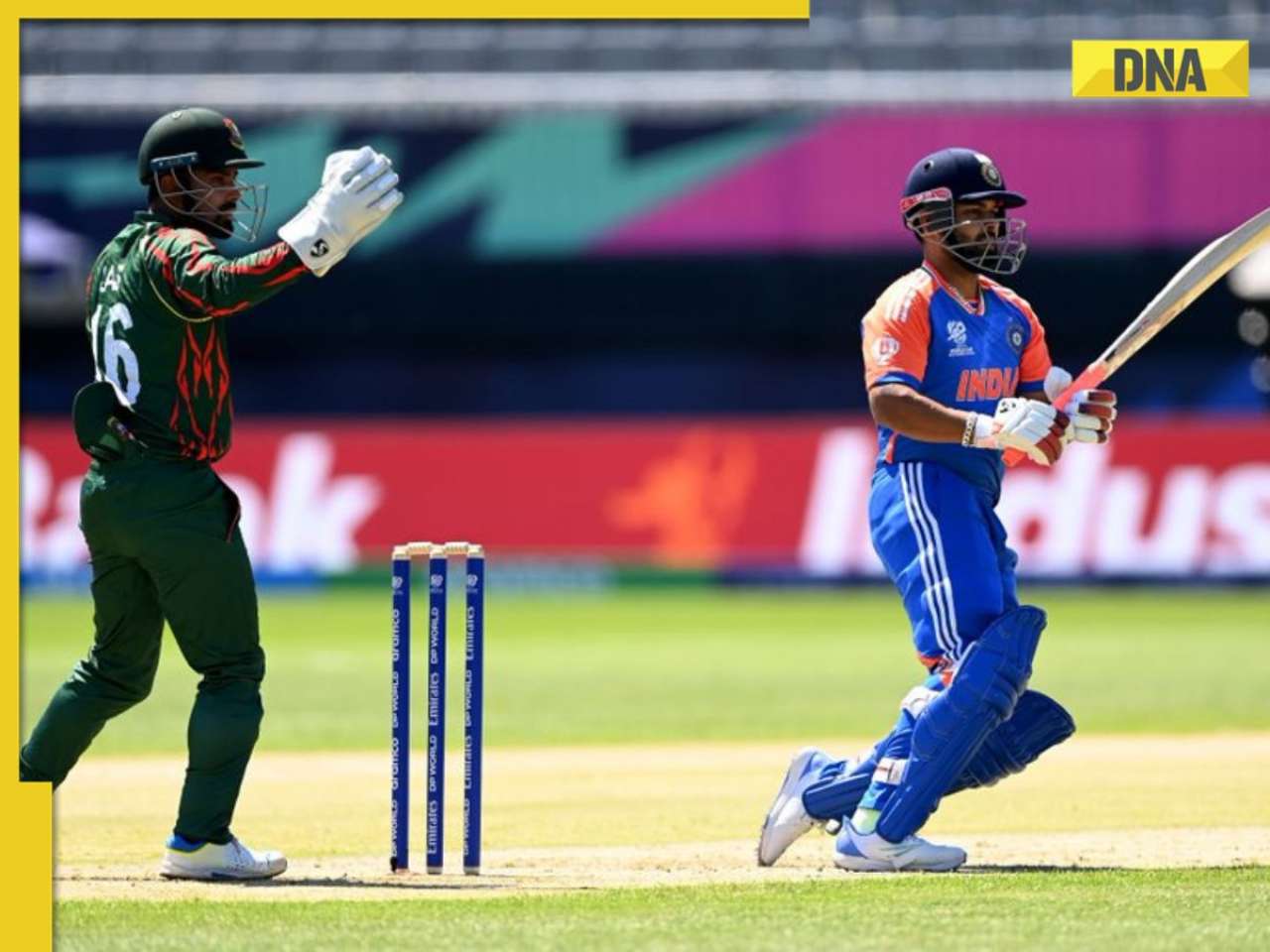

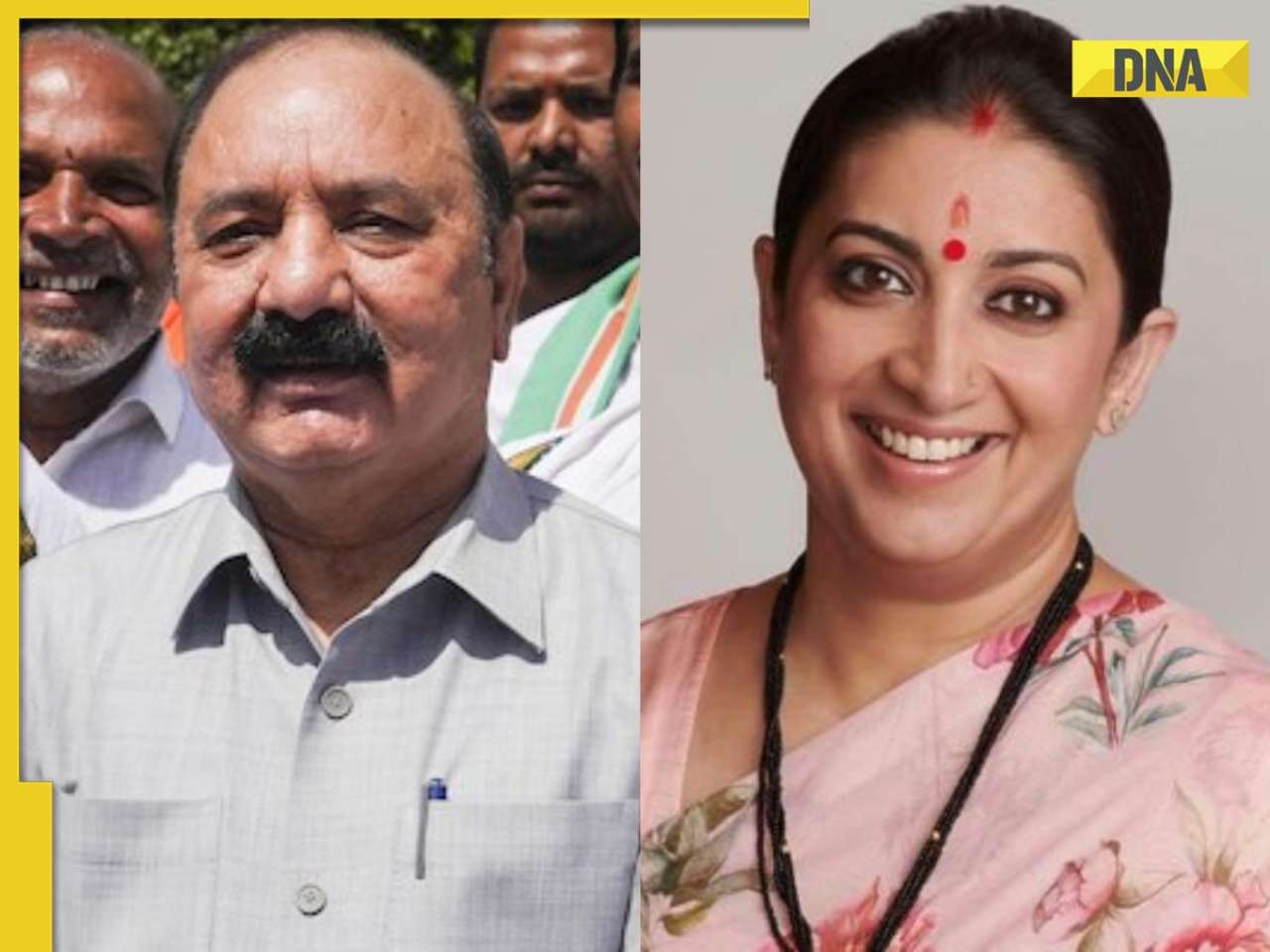
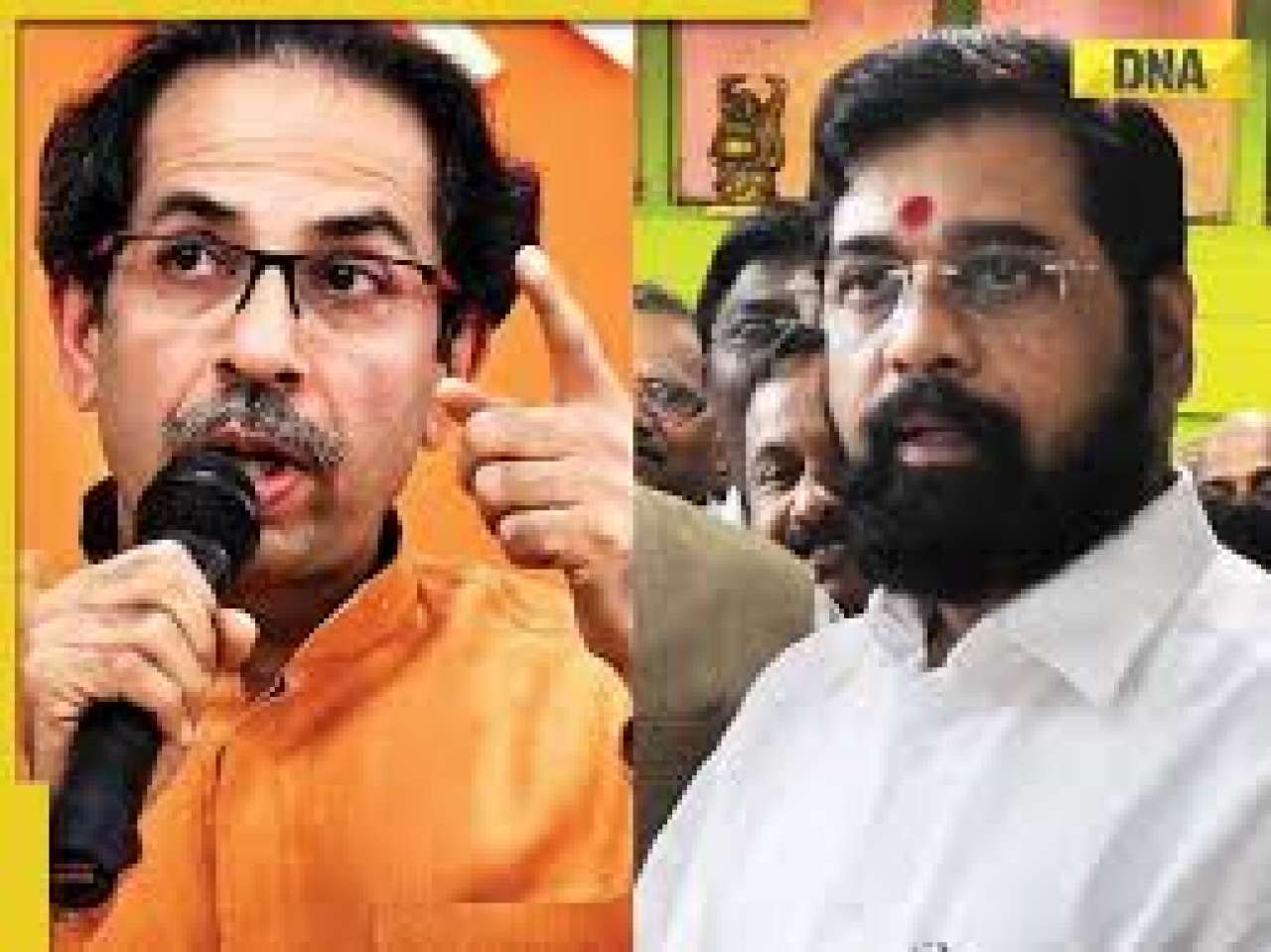
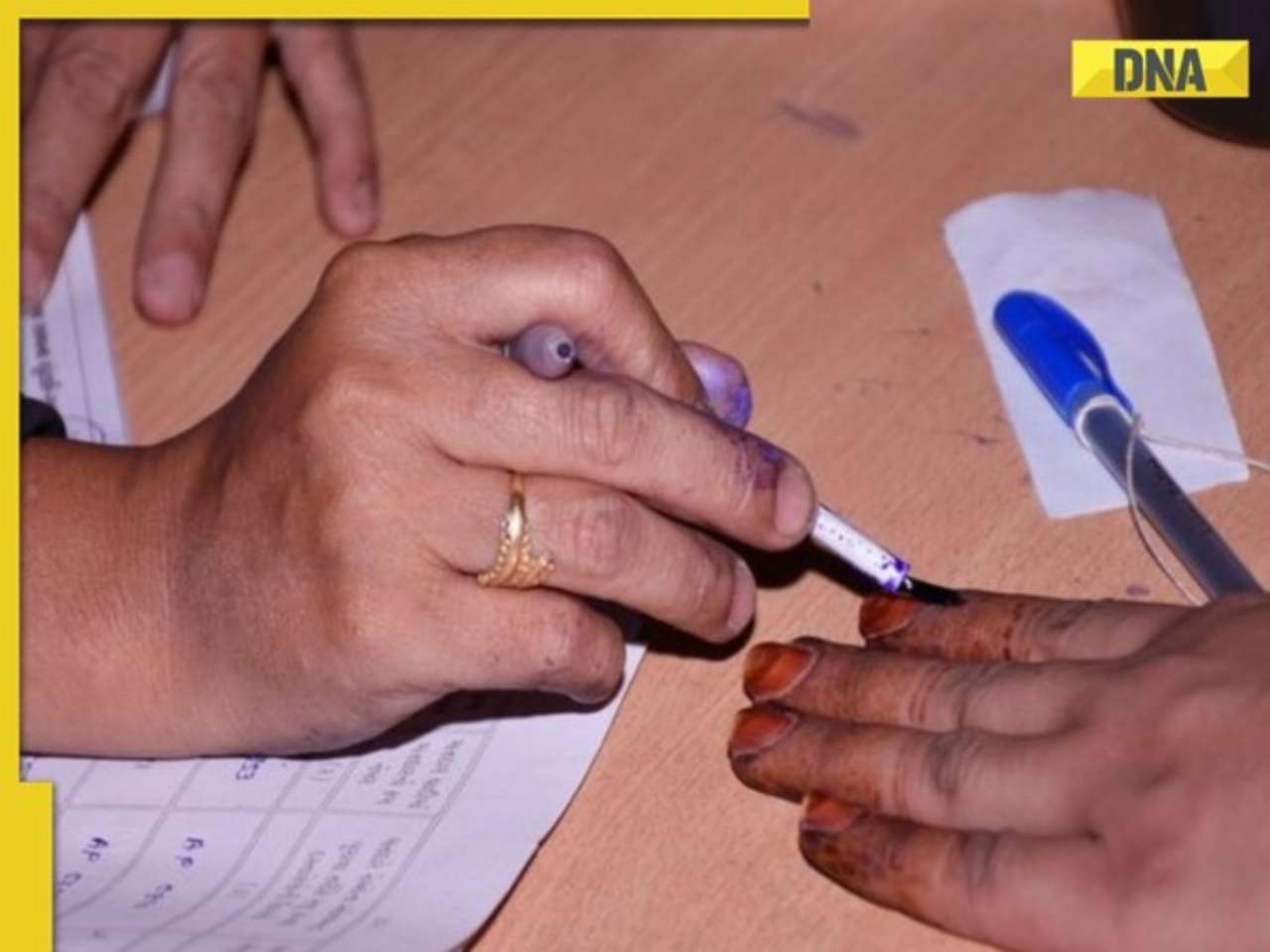





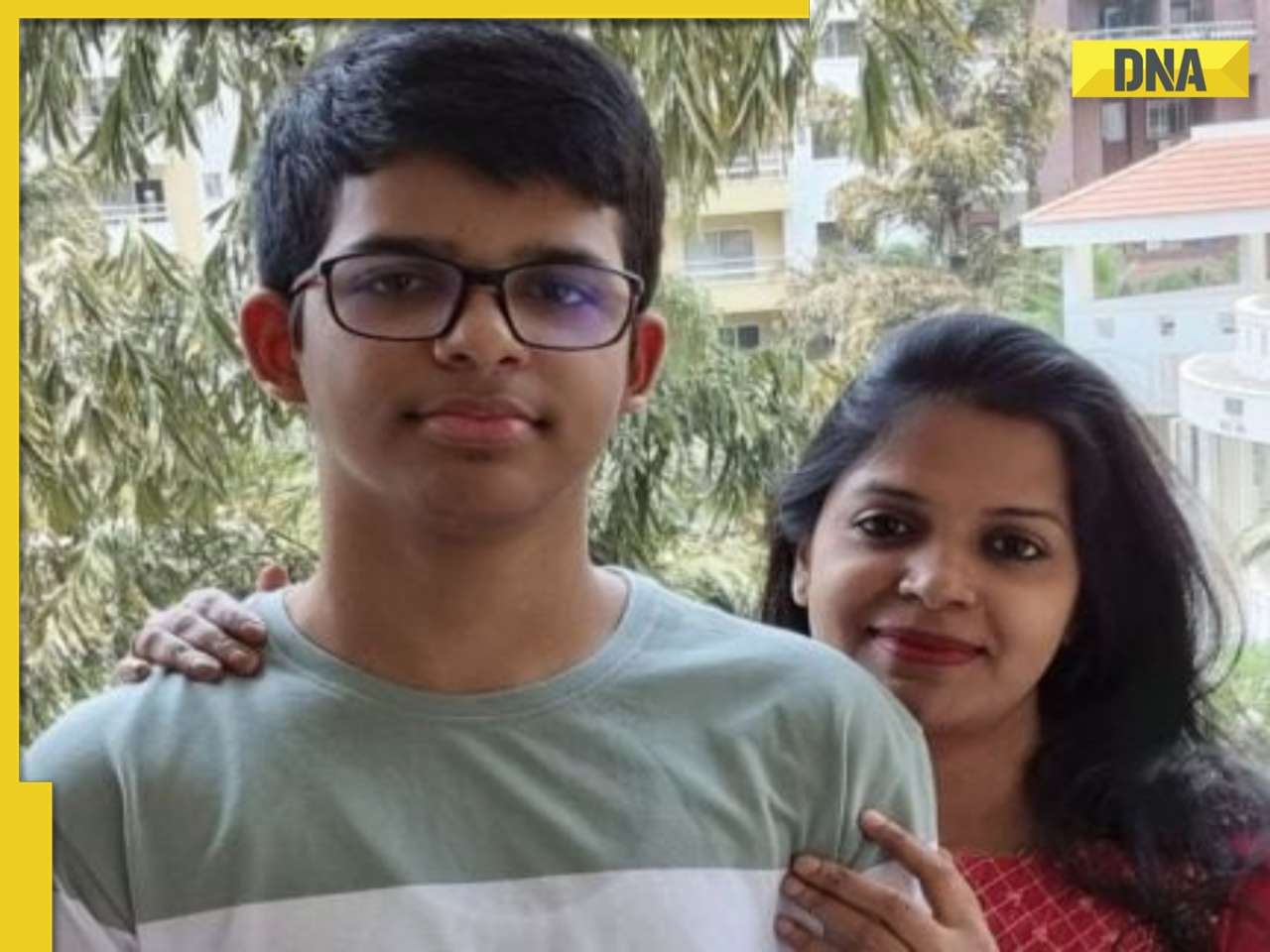

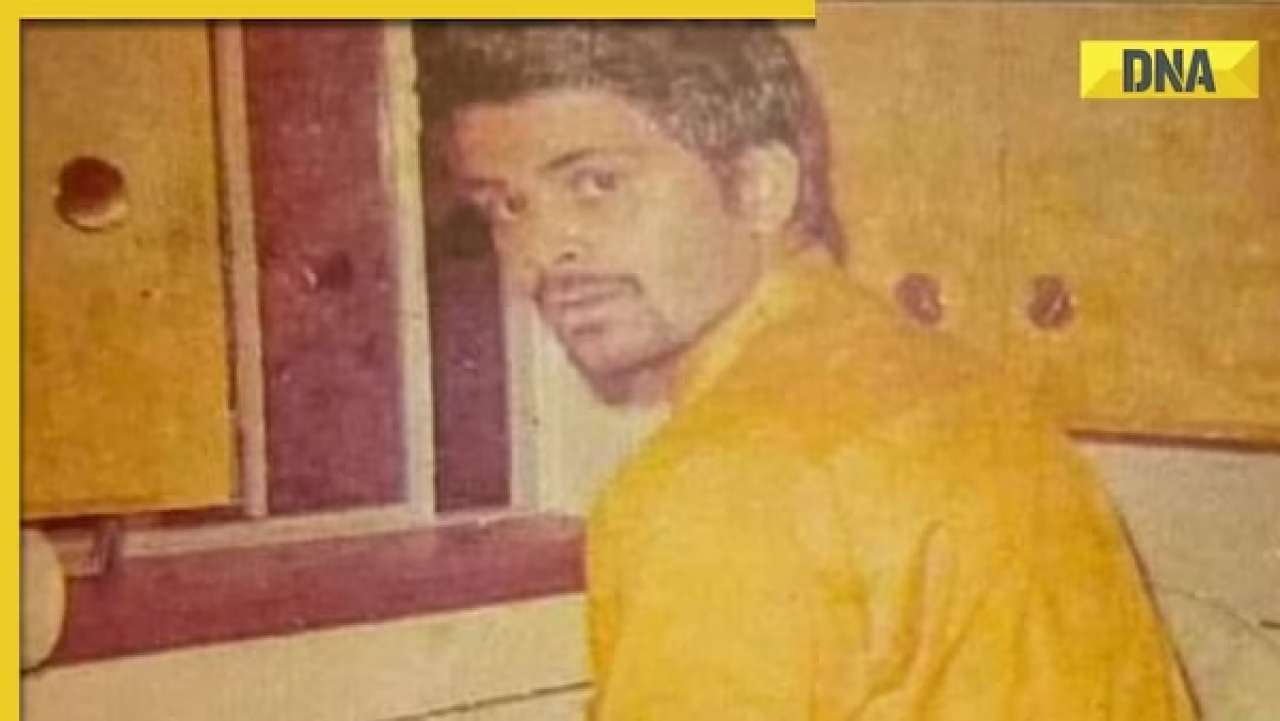































)
)
)
)
)
)